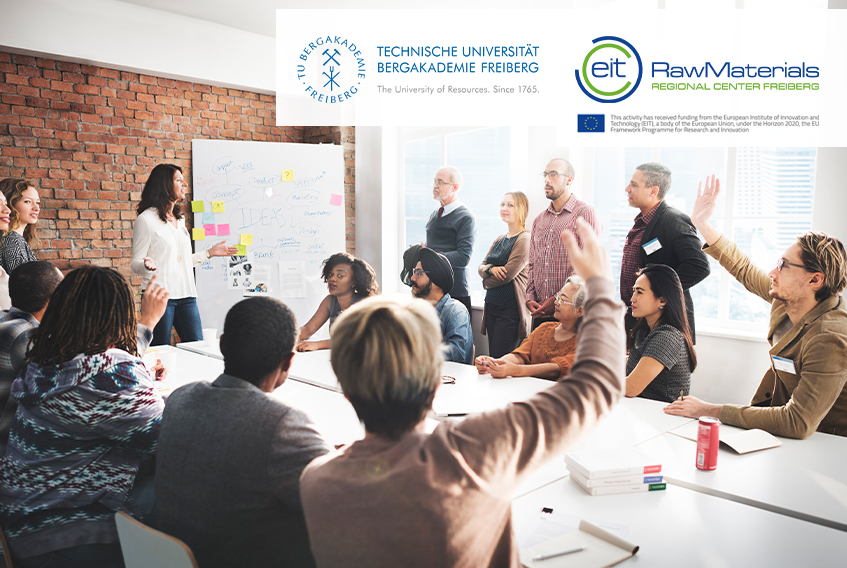

Course: Integration of Holistic Approaches of Cleaner Production, Sustainable Consumption, Circular Economies and Benefit Corporation Concepts into Sustainability Oriented, Existing and Start-up Companies 2
13 October 2020 - 15 October 2020
Consumers, employees, and investors are demanding that companies address social and environmental problems as core to their marketplace success. This course helps participants understand and apply emerging holistic methodologies for integrative product service system design, cleaner production, sustainable consumption and transformative business models for the circular economy, such as B Corporations.
Programme
Course description
This course, taught in five sections, is based on practical learning through experiential education and supplemental readings. It will inspire participants and empower them to become socially conscious business leaders who can advance their careers and their companies by successfully moving forward in this exciting new economy.
The overall curriculum helps provides holistic approaches for cleaner production, sustainable consumption, and new company structures based on a triple-bottom line (people, planet, profit) approach to business. New business models, such as Certified B Corporations and Legal Benefit Corporations, will be introduced with an emphasis on a company’s performance in five impact areas: community, environment, workers, customer and good governance through transparency and accountability.
Participants will learn how to achieve positive transformative change through better planning, management, and knowledge platforms. Among subject areas covered will be improving production/processing facilities, enhancing product-service systems, empowering employees, and broadening from a shareholder-only orientation to engage up- and downstream stakeholders – including suppliers, customers, and communities.
Course content
The content of the course are divided into five sections. The broad outline are as follows:
Section-1
Expanding the understanding of the value chain, from production, processing, wholesaling, retailing and valorising wastes in transitioning to sustainable circular economies.
Group work: Corporate value stream mapping for any industrial sector.
Section-2
Concepts of benefit corporation for the transitions to sustainable and conscious businesses within sustainable circular economies within the climate emergency.
Group assignment: Planning for implementation of cleaner production, industrial ecology, circular economy and conscious business approaches in the participant’s own company.
Section-3
Why and how can cleaner production, sustainable consumption, industrial ecology and circular economy, concepts and approaches help to ensure food, water and societal security in the context of climate changes and population growth?
Section-4
Sustainable consumption and production and learning how to prevent, minimize and to valorise wastes.
Section-5
Understanding socially conscious businesses, purposeful design of products-service systems, sharing platforms and sharing economy business models and strategies.
Group presentation: Based on the section 2 assignment; discussion on the cleaner production strategies, tools and conscious business approaches thus prepared by course participants.
Note:
After the completion of this course, a Skype-consultation (min. 1 hour) will be offered in a group for each company participants, who will analyze and submit their own organization’s opportunity and challenges to become a truly sustainable company within a circular economies in the context of climate emergency.
Type of training
- Face-to-face teaching
- Peer-to-peer workshops
- Guided independent learning
- Group presentation
- Participant’s presentations about their company’s challenges and opportunities to build upon the lessons learned by each participant.
Objectives and outcome
- Enhance knowledge of the roles of cleaner production, industrial ecology and the circular economy concepts and tools in present and future companies, in the context of climate changes and related challenges.
- Understanding of how and why companies can and should provide benefits for people, planet and profits at the same time.
- Learn how to implement cleaner production, concepts, tools and policies into their company.
- Analyse their own organization’s opportunities and challenges for implementing the lessons they learned in the course and to project how their new visions and knowledge will help their companies to contribute to societal transition to truly sustainable, circular economies in the context of climate changes and other challenges.
Language
English
Target Group
- Leaders and managers of companies across all industrial sectors.
- Sustainability professionals, supply chain managers, technical managers, product designers in the field of industrial manufacturing, assembling, trading, recycling etc.
- Start-ups founders, and others who want to develop future-proof circular solutions and benefit corporation.
